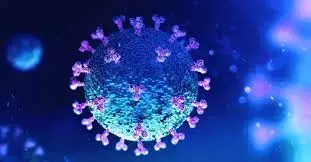- Home
- Medical news & Guidelines
- Anesthesiology
- Cardiology and CTVS
- Critical Care
- Dentistry
- Dermatology
- Diabetes and Endocrinology
- ENT
- Gastroenterology
- Medicine
- Nephrology
- Neurology
- Obstretics-Gynaecology
- Oncology
- Ophthalmology
- Orthopaedics
- Pediatrics-Neonatology
- Psychiatry
- Pulmonology
- Radiology
- Surgery
- Urology
- Laboratory Medicine
- Diet
- Nursing
- Paramedical
- Physiotherapy
- Health news
- Fact Check
- Bone Health Fact Check
- Brain Health Fact Check
- Cancer Related Fact Check
- Child Care Fact Check
- Dental and oral health fact check
- Diabetes and metabolic health fact check
- Diet and Nutrition Fact Check
- Eye and ENT Care Fact Check
- Fitness fact check
- Gut health fact check
- Heart health fact check
- Kidney health fact check
- Medical education fact check
- Men's health fact check
- Respiratory fact check
- Skin and hair care fact check
- Vaccine and Immunization fact check
- Women's health fact check
- AYUSH
- State News
- Andaman and Nicobar Islands
- Andhra Pradesh
- Arunachal Pradesh
- Assam
- Bihar
- Chandigarh
- Chattisgarh
- Dadra and Nagar Haveli
- Daman and Diu
- Delhi
- Goa
- Gujarat
- Haryana
- Himachal Pradesh
- Jammu & Kashmir
- Jharkhand
- Karnataka
- Kerala
- Ladakh
- Lakshadweep
- Madhya Pradesh
- Maharashtra
- Manipur
- Meghalaya
- Mizoram
- Nagaland
- Odisha
- Puducherry
- Punjab
- Rajasthan
- Sikkim
- Tamil Nadu
- Telangana
- Tripura
- Uttar Pradesh
- Uttrakhand
- West Bengal
- Medical Education
- Industry
Covid-19 has potential to induce diabetes, find Indian researchers

Dr V.K. Shivane, A.R. Lila and T.R. Bandgar from the department of endocrinology, KEM Hospital have detailed in a new research paper that onset of hyperglycaemia, or excessive blood glucose, was noticed in some covid-19 patients with HbA1c levels and without any family history of diabetes.
The research paper has been published in the Journal of Postgraduate Medicine, the official publication of the Seth Gordhandas Sunderdas Medical College and King Edward Memorial Hospital, Mumbai.
According to a communication by Ministry of Health and family welfare around 47% of the people succumbing to covid-19 infection were below 60 years and were suffering from hypertension, diabetes and cardiac diseases, among other comorbidities.
"Diabetes occurs when the body does not produce hormone insulin or does not use it efficiently. Insulin regulates the amount of glucose in the blood. There is a need to establish a registry of "covid-19 related DM" from various covid centres and hospitals of India, said the authors.
Whether the patients will become permanently diabetic or achieve remission also needs to be explored.
"This so-called 'covid-19 related DM' is a matter of concern during management. Eventually, all of them are being managed by subcutaneous or intravenous insulin to achieve normoglycemia, or normal levels of sugar, during hospitalization.
However, 'covid-19 related DM' may achieve normoglycemia with insulin early compared to patients with pre-existing DM, but associated steroid use may complicate the picture," said the authors.Similar trends were noticed worldwide, according to the study.
Covid-19 has the potential to induce diabetes but whether the patients will become permanently diabetic is a million dollar question that needs to be explored.
Dr Kamal Kant Kohli-MBBS, DTCD- a chest specialist with more than 30 years of practice and a flair for writing clinical articles, Dr Kamal Kant Kohli joined Medical Dialogues as a Chief Editor of Medical News. Besides writing articles, as an editor, he proofreads and verifies all the medical content published on Medical Dialogues including those coming from journals, studies,medical conferences,guidelines etc. Email: drkohli@medicaldialogues.in. Contact no. 011-43720751


